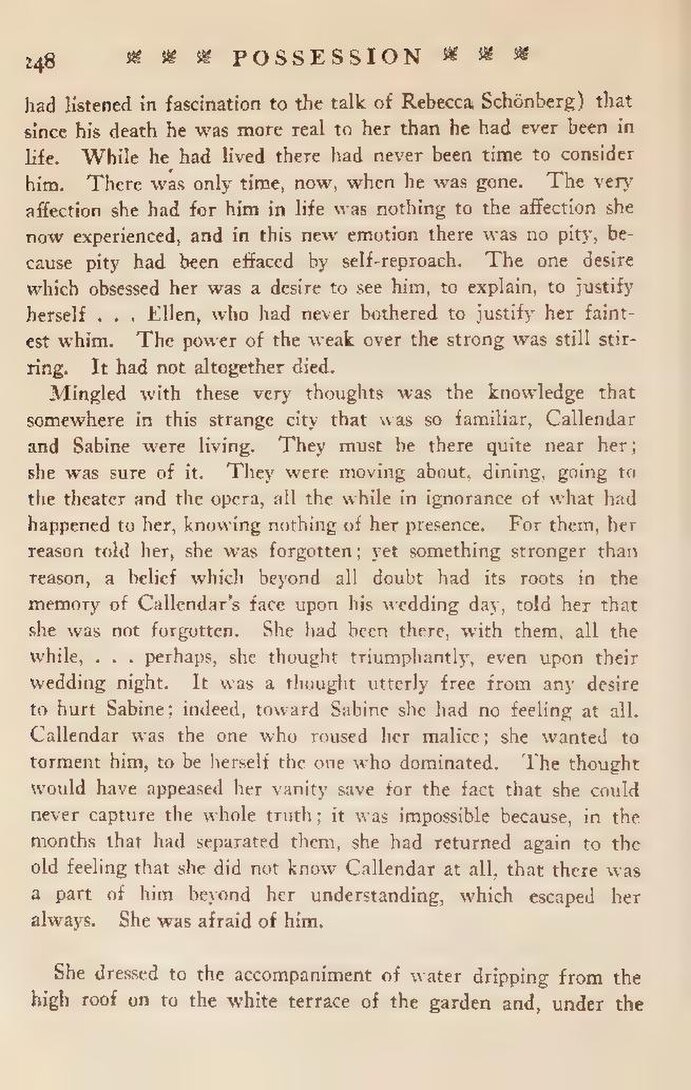had listened in fascination to the talk of Rebecca Schönberg) that since his death he was more real to her than he had ever been in life. While he had lived there had never been time to consider him. There was only time, now, when he was gone. The very affection she had for him in life was nothing to the affection she now experienced, and in this new emotion there was no pity, because pity had been effaced by self-reproach. The one desire which obsessed her was a desire to see him, to explain, to justify herself . . . Ellen, who had never bothered to justify her faintest whim. The power of the weak over the strong was still stirring. It had not altogether died.
Mingled with these very thoughts was the knowledge that somewhere in this strange city that was so familiar, Callendar and Sabine were living. They must be there quite near her; she was sure of it. They were moving about, dining, going to the theater and the opera, all the while in ignorance of what had happened to her, knowing nothing of her presence. For them, her reason told her, she was forgotten; yet something stronger than reason, a belief which beyond all doubt had its roots in the memory of Callendar's face upon his wedding day, told her that she was not forgotten. She had been there, with them, all the while, . . . perhaps, she thought triumphantly, even upon their wedding night. It was a thought utterly free from any desire to hurt Sabine; indeed, toward Sabine she had no feeling at all. Callendar was the one who roused her malice; she wanted to torment him, to be herself the one who dominated. The thought would have appeased her vanity save for the fact that she could never capture the whole truth; it was impossible because, in the months that had separated them, she had returned again to the old feeling that she did not know Callendar at all, that there was a part of him beyond her understanding, which escaped her always. She was afraid of him.
She dressed to the accompaniment of water dripping from the high roof on to the white terrace of the garden and, under the
